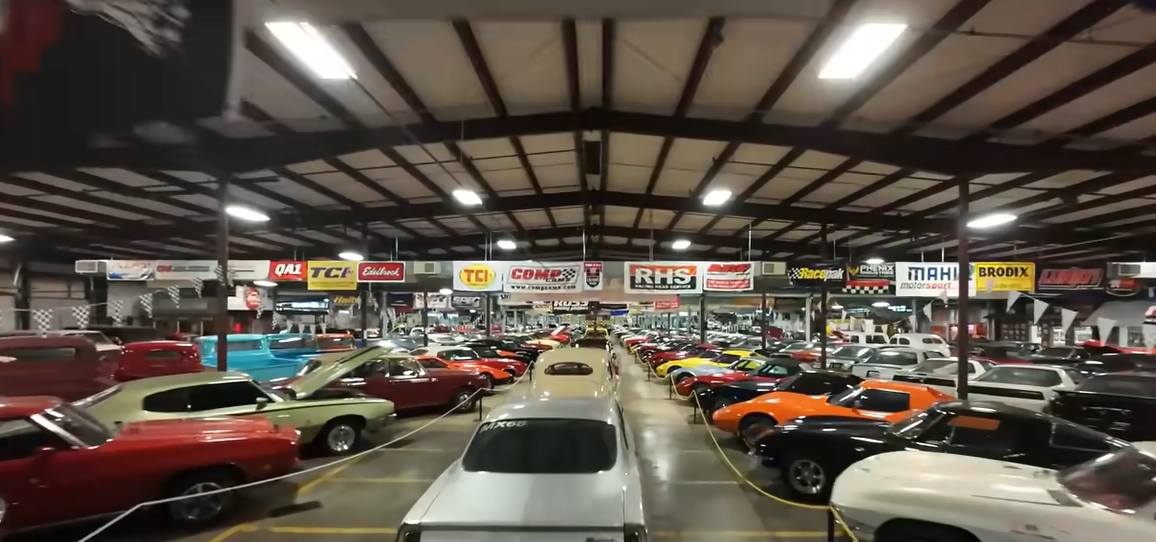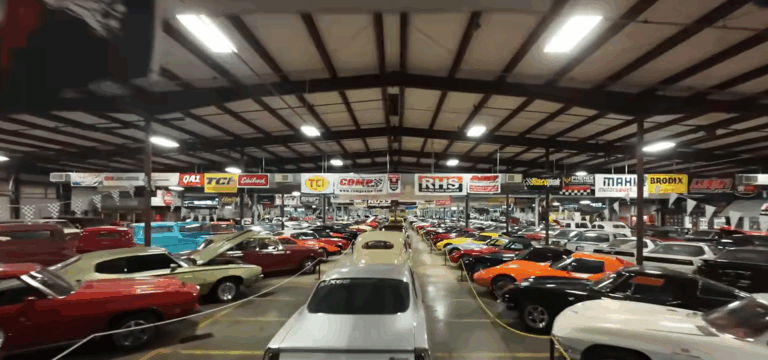Dollars and horsepower are the two currencies used to measure Don Baskin’s wealth. While his private automobile collection, one of the largest owned by an individual, serves as both a passion project and an appreciating asset, his success in the commercial truck industry has produced a business that is extremely efficient in generating consistent revenue.
The foundation of his fortune is the dealership he established in Covington, Tennessee. With yearly sales estimated to be between $10 million and $100 million, Don Baskin Truck Sales is a remarkably dependable performer in the commercial vehicle market. Strategic planning and in-depth market knowledge have allowed Baskin to sustain growth even during industry downturns in a field that requires operational precision.
But it’s his collection of cars that makes his financial story truly remarkable. Even the most seasoned car collectors would be jealous of Baskin’s collection, which consists of more than 1,000 vehicles with a conservative value of $40–50 million. Some cars are so uncommon that they can only be found in historical archives; others are race cars that have won competitions and are emblazoned with their winnings.
The size is remarkably comparable to that of a national museum dedicated to automobiles. Rows of Chevrolet Camaros, vintage Corvettes, Novas, and Dodge Hellcats are housed in one of his storage facilities, which is an incredible 270,000 square feet. In addition to 20 Corvettes and 25 Hellcats, there are over 80 Camaros. This collection is not just huge; it is also incredibly successful in preserving automotive history and serving as a financial investment.

Don Baskin — Personal and Professional Profile
| Detail | Information |
|---|---|
| Full Name | Don Baskin |
| Known For | Businessman, Car Collector, Owner of Don Baskin Truck Sales |
| Nationality | American |
| Business Headquarters | Covington, Tennessee, USA |
| Company Revenue | Estimated $10–$100 million annually |
| Primary Industry | Truck, Trailer, and RV Sales & Leasing |
| Car Collection Size | Over 1,000 vehicles |
| Estimated Collection Value | $40–$50 million |
| Notable Models Owned | 80+ Camaros, 25 Hellcats, 20 Corvettes, rare classics and race cars |
| Reference | Baskin Truck Sales |
The way Baskin combines business strategy with personal passion is what makes his approach so unique. He has made consistent investments in cars that have increased in value much more quickly than many conventional assets by taking advantage of his dealership’s profitability. Due to the declining number of well-preserved models and a renewed interest from younger collectors, the market for vintage American performance cars has significantly improved in recent years.
His experience racing competitively gives the narrative another depth. Baskin participates actively in automotive culture and is more than just a collector. He has developed a strong bond with motorsport, owning a racetrack and multiple championship-winning drag cars. He differs from celebrity collectors who view cars only as status symbols because of his genuineness.
Geographical advantage has been advantageous for Baskin’s dealership from a business perspective. It is situated in Tennessee and acts as a key distribution center for commercial trucks and trailers in the Midwest and Southeast. The business has increased its market reach through strategic alliances, which enables it to successfully compete with bigger national chains.
When compared to other well-known collectors, Baskin’s scale is comparable to Jay Leno’s renowned collection, but it places more of an emphasis on American muscle and racing history. Baskin’s garage embodies the audacious, industrial spirit of American automotive design, whereas collectors such as Ralph Lauren concentrate on rare European exotics. His collection is extremely diverse, combining raw, track-tested machines with immaculate, showroom-ready classics.
It is impossible to overestimate the cultural significance of Baskin’s holdings. Large-scale collections of icons powered by gasoline will become more and more uncommon in the upcoming years as the automotive industry continues its transition to electric mobility. This preserves a mechanical era that influenced generations of drivers and enthusiasts, making his garage not only a financial asset but also a cultural archive.
Even though people occasionally wonder if his last name is similar to that of Carole Baskin, the owner of the animal sanctuary made famous by Netflix’s “Tiger King,” there is no relationship between the two. However, the coincidence frequently raises questions, highlighting how surprising connections can arise in the current media landscape.
In the end, Don Baskin’s wealth is a reflection of a life spent creating—creating a company, a collection, and a legacy that combines business and culture. His car empire keeps expanding in size and worth, and his dealership continues to be a reliable source of income.


